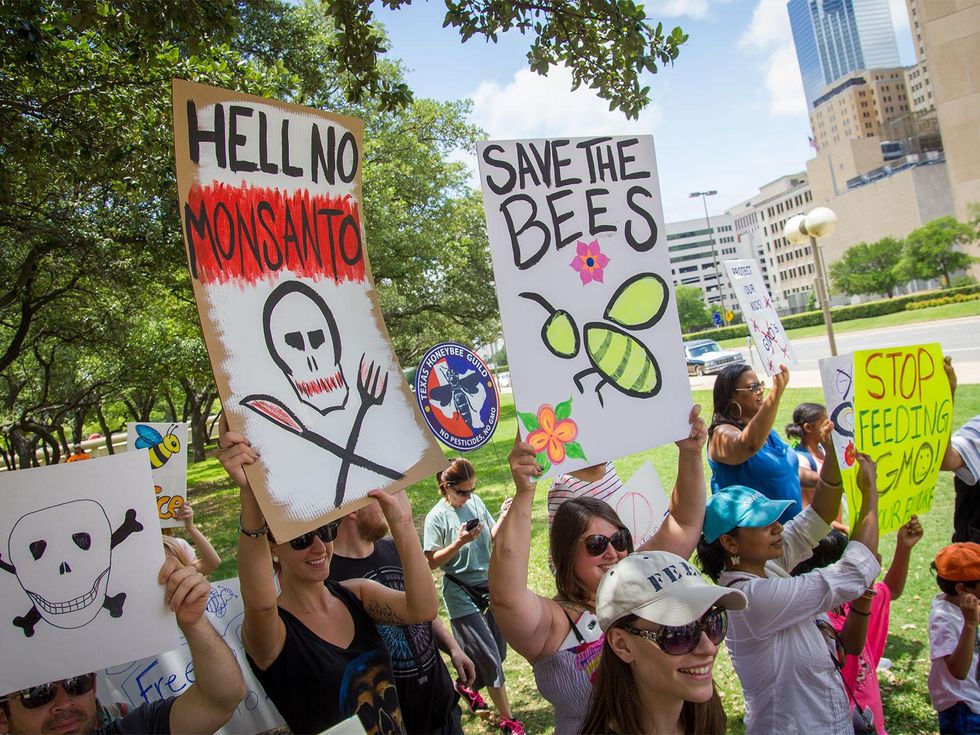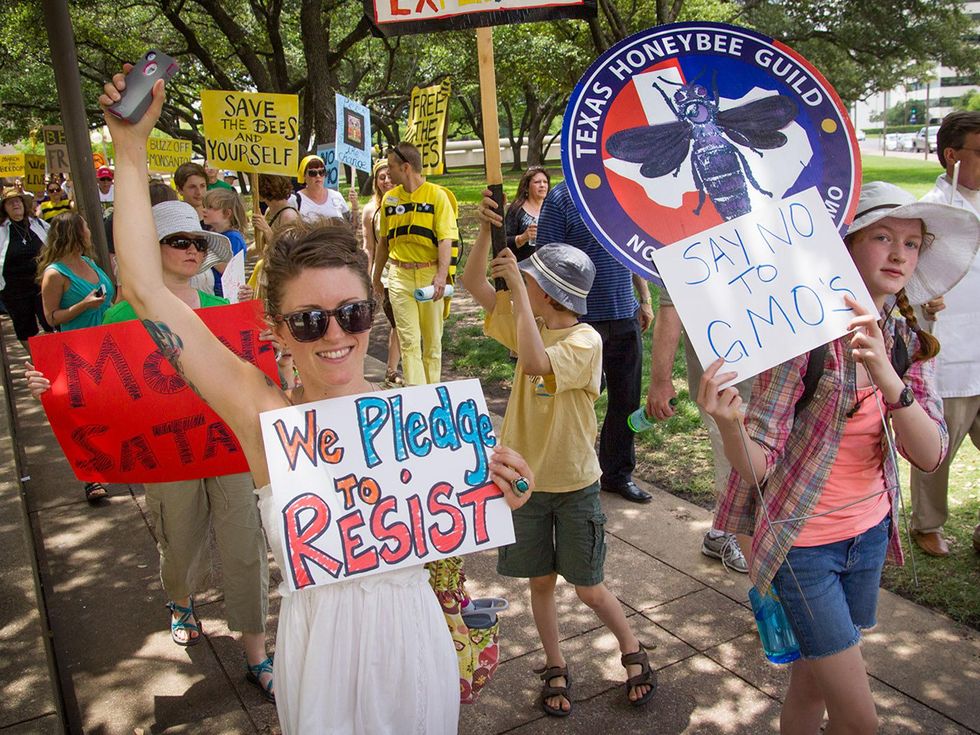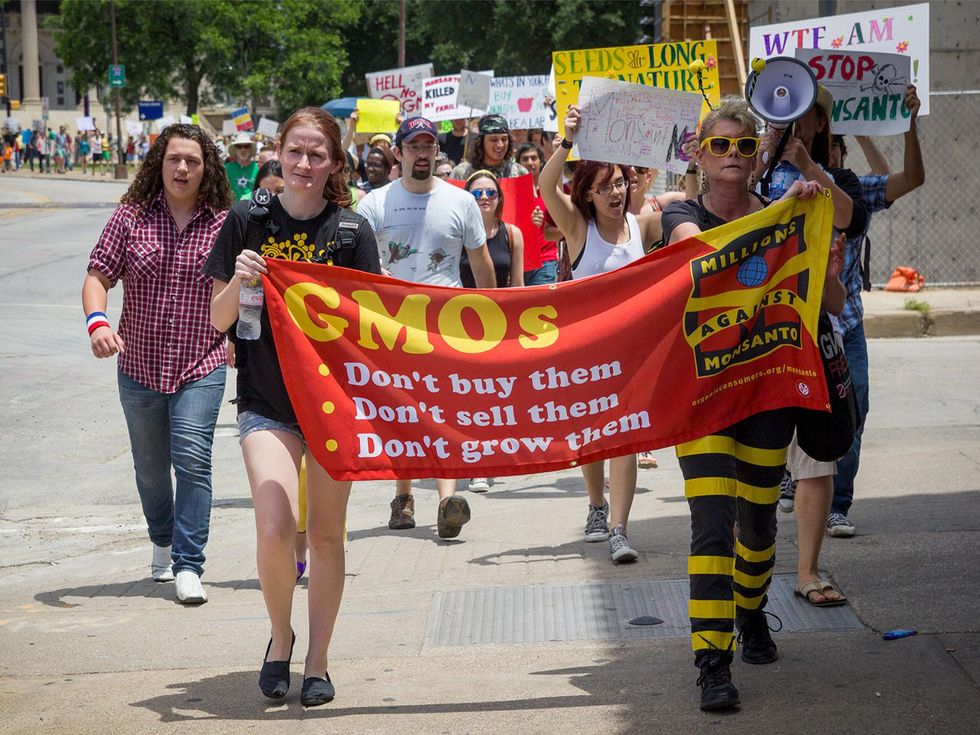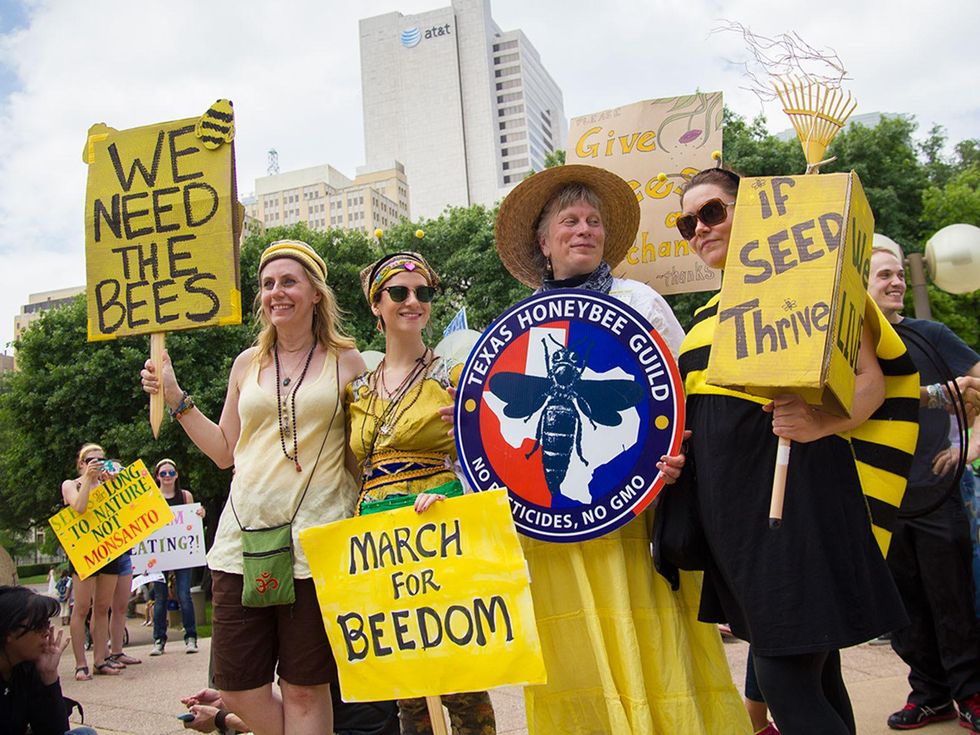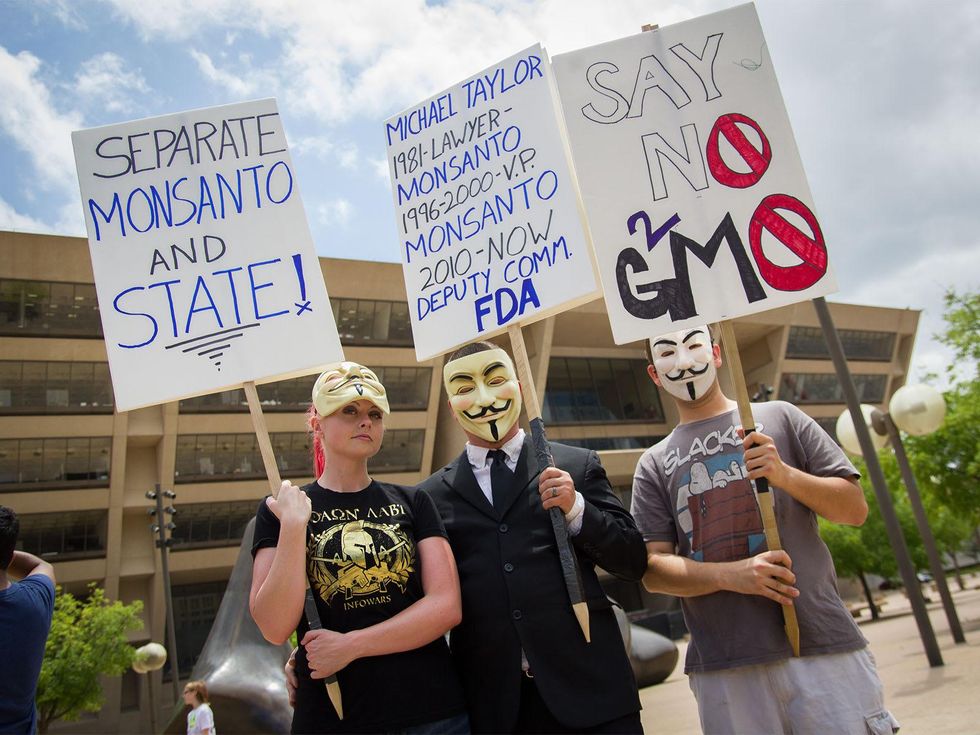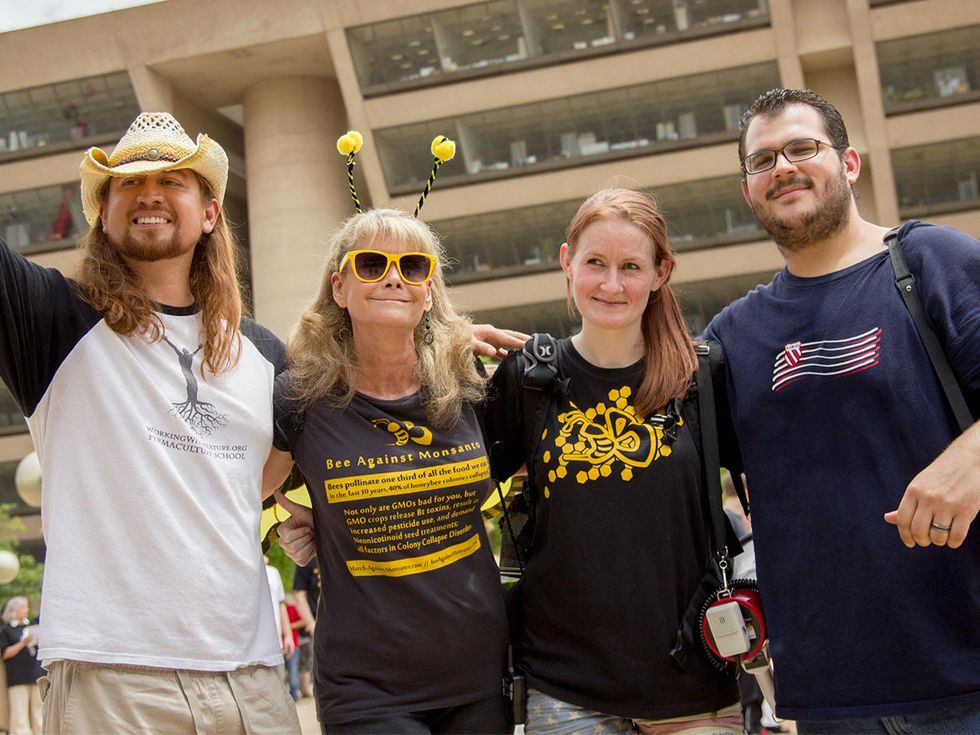The Farmer Diaries
Downtown Dallas protesters join worldwide movement in March Against Monsanto
Observing what has become an annual international event, several hundred local residents participated in a March Against Monsanto on May 24 in downtown Dallas. Carrying signs and chanting "Hey hey ho ho! GMOs have got to go," the marchers looped from City Hall to Dallas Farmers Market and back, then gathered in front of City Hall for presentations by organizers and GMO critics.
The march in Dallas was one of hundreds of events throughout the world held on the same day to protest the dangers of genetically modified organisms. GMOs comprise crops such as corn and soy that have been altered so they either resist agricultural herbicide applications or produce an insect toxin as a means of pest control.
Monsanto serves as a symbol for the group of agricultural chemical giants that have introduced genetically engineered crops for commercial production worldwide since the mid-'90s.
"I am worried about our babies, our mothers, for our future generations. The herbicide Roundup is an unbelievable hormone disruptor," said speaker Dr. Margaret Christensen. "I want all of you to go to responsibletechnology.org and download the most recent guide to the medical consequences of GMOs and take it to your doctor. My colleagues need to educate themselves. A healthy prescription begins with a GMO-free diet."
Attendees at the Dallas event included Sundown at Granada chef Patrick Stark, Don Bates, candidate for the Senate seat for District 2, and a large contingent from the Texas Honeybee Guild.
Although it's not the only producer of GMO crops, Monsanto is at the center of protests because of its focus on developing GMOs that work in tandem with the company's well-known brand of herbicide, Roundup. For the protesters, Monsanto serves as a symbol for the group of agricultural chemical giants, including Dow, Dupont and Syngenta, that have introduced genetically engineered crops for commercial production worldwide since the mid-'90s.
The companies are sacrificing the public's health and well-being as they compete to corner the worldwide seed market through patents on their GMO seed and sales of the chemicals that are part of the GMO business model, said organizer Nicholas Burtner. "But we’re having an impact on them," he said. "They're having to spend millions of dollars on political campaigns and public relations to counter our message."
Despite the growth of the anti-GMO movement, the industry has made substantial gains. Since 2013, the amount of cropland being planted with GMO seed has grown by more than 19,000 square miles, according to the International Service for the Acquisition of Agri-biotech Applications. Worldwide, an estimated 18 million farmers are now planting 675,678 square miles of cropland with GMO crops.
In the United states, adoption of GMO crops among farmers stands at 90 percent. U.S. farmers account for about 40 percent of the total cropland dedicated to GMOs.
Biotech critics implicate GMOs and the chemicals employed in GMO crop production in a variety of human illnesses, including gastrointestinal and immune disorders. They also claim that GMOs harm biodiversity and contaminate non-GMO crops through cross pollination.
"Our event today is an attempt to raise awareness about our food, to get together with like minds and bounce ideas off each other about how we're going to change the way our food is produced," said organizer Jessica Winters.
